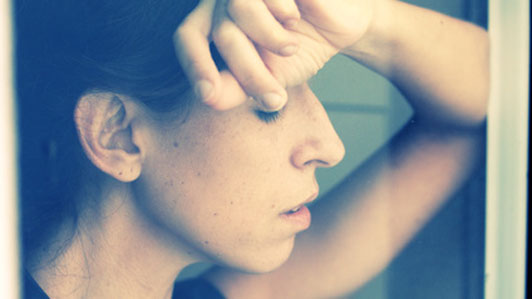Too much sleep
Are you getting too much sleep? If you are getting between 6 and 8 hours of sleep you are fine. However, results from sleep studies carried out over the past decade show that there are risks sleeping more than 8 hours or less than 6 hours a night. What risk? You're about to find out.
A lot of people say that they are tired all the time and that they need more sleep. But what if they are getting too much sleep? Usually people don't really think about this aspect because they don't think it is possible. Nonetheless, sleeping too much is a real problem and more people make this mistake than you would think. How much sleep do you get per night? You think it's normal? The problems you might have could be linked to the number of hours you sleep per night. Learn more about the signs of getting too much sleep and make sure you don't make the same mistakes.

Is It Possible to Sleep Too Much? How Can You Know if You Are Getting Too Much Rest? Ways You Can Tell
So, what are the effects of too much sleep? How can you know that you are getting just too much rest, even though you never thought it was possible? Here are the physical and mental side effects of oversleeping?
How much sleep is too much?

Did you ever wonder how many hours of sleep should you get per night? Usually people say that you should sleep for 8 hours. Nonetheless, the correct answer would be 7-8 hours. If you sleep less, you will feel always tired. However, the same is true if you sleep too much. According to the studies conducted in the field, if you sleep more or less than 7-8 hours per night, your chances of observing side effects increases by 25%. The longer it takes for you to admit that you have a problem of this kind, the more difficult it will be to get back on the right track.
1. Depression

Being depressed may cause you to oversleep
If you think you may be getting too much sleep, there is a chance you may be overlooking the harmful side effect oversleeping has on your mental health. Sleeping too much is one sign of depression you don't want to overlook. You may say that you never had problems with depression before, but lately you are always sleepy and you feel like there is something wrong. Although you should discuss the matter with a trained specialist who would recognize the signs of depression, you should also think about the possibility that you are sleeping too much. At this point you could be asking: is sleeping too much bad? Anything done in excess is bad, even sleeping. Too much sleep, instead of giving you more energy, will make you feel more tired and in need of sleep. As a result you will get in a vicious circle.
2. Unexplained weight gain

Have you been trying to lose weight only to find that you gained weight? If there is no other explanation (no change of diet or habits or other medical conditions), sleeping too much might be the culprit. If you step on the scale and find that you are heavier than the last time you did so, you could ask yourself: do I sleep too much? This is always a possibility even if you feel like you sleep less than before. The people who sleep too much have 25% more chances of gaining weight even if they have a controlled diet and they work out. Specialists believe that this aspect could be a contributing factor to the current high obesity rates.
3. If you feel tired all the time

Are you constantly whining about feeling tired? The answer to your problem lies in the number of hours of sleep per night. Do you sleep more than 8 hours? In case your answer is affirmative, you could ask: is too much sleep bad? The truth is that even sleep can be bad for you. Can you sleep too much? Yes. The body has an amazing ability to adapt. If you get used to sleeping 10-11 hours per night, your body will get used to it. In this case the body is trying to compensate the lack of high quality sleep with higher quantities of sleep, thus leaving you less energized. Instead of increasing the number of hours of sleep, you should make sure that you get resting sleep. For this you may have to make some changes in your surroundings.
4. Headaches

Did you ever wake up with a horrible headache? This usually happens during the holidays and on weekends when people have more time to sleep. When asking can you get too much sleep, you should know that the answer is yes and it can affect you in more than one way. Specialists believe that oversleeping can be connected to headaches because it affects certain neurotransmitters in the brain. In case you are wondering what happens if you sleep too much, you should know that if you nap during the day, your sleep will be disrupted during the night, which makes it more likely for you to wake up with a headache.
5. Back pain

Are you an excessive sleeper? In the past, doctors told excessive sleepers with back pain that they should rest more. Those times are over. Although you should change your workout routine a bit to protect your back, there is no reason for you to cut down on your activities. As a matter of fact, doctors say that you shouldn't sleep more than usual under any circumstances. If you are asking is sleeping too much bad for you, you should know that it isn't good to spend too much time in bed. When you stay active, you keep the muscles working, which will prevent aches and pains.
In addition to sleeping the right amount, your bed could be making all the difference in your back pain or lingering arthritis. If you are feeling rested but experience pain, think of changing your old mattress out for a new one. Change the style of the bed from your previous from a soft to firm mattress or vice versa. Add or subtract a pillow and see what your posture could improve from. It's the small things that make all the difference to chronic back pain. Your quality of sleep matters just as much as your quantity of sleep.
6. Impairs brain functioning

Say bye to your brain cells
Sleeping you smarter, improves brain function; however, too much sleep may have to opposite effect.
Did you know that too much sleeping can actually worsen your brain functioning if getting into an oversleeping habit? Sleep should be a time for our brains to repair itself from an entire 16 hours of thinking nonstop. It's a time for our mind to get rest. But over-rest means that there are hours of wasted time you could be spending doing things. Sleeping more than necessary is using up valuable time and giving your mind extra time to decay.
7. Pregnancy troubles
Makes it harder to have children
Studies have shown that pregnancy rates were higher among women who regularly get seven to eight hours of sleep every night and lower among women who get lower or more than that amount regularly. The evidence is not absolute, but enough to show a relationship between the two being a cause for concern. Sleep habits have an effect on your hormones. Altering your circadian rhythm might be damaging not only to your mental health but also your reproductive system. Infertility is a serious life complication that should not be ignored. The consequences of excess sleeping may be more serious than you previously thought.
8. Increases risk for diabetes
Your sleep affects your blood pressure
Diabetes and sleeping too much are correlated. People who sleep more than 8 hours on average have harder time controlling their metabolism, leading to impaired glucose tolerance. Their blood sugar spikes easier and more quickly than normal and this leads to weight gain. As you may already know, obesity is a pandemic and raises a host of other health issues such as type 2 diabetes. Our body's natural circadian rhythm is what keeps our blood sugar levels in check. When we throw it out of whack and get inconsistent sleep, it wreaks havoc on our bodies in ways that aren't even understood completely yet.
9. Heart problems
Heart disease a higher likelihood Set those alarm clocks earlier, because a healthy heart is counting on you to sleep the right amount. Long sleepers had two times the risk of developing problems later on in life. So while there are benefits to getting enough sleep for a healthy heart, getting too much sleep could have the opposite effect. The heart is an especially important and fragile organ that could lead to many complications when you're older. It is in your best interest to protect it best as you can with enough but not too much shut-eye.
Why do people sleep too much?
Sleeping too much may be a medical disorder such as in the case of hypersomnia and obstructive sleep apnoea, triggered through physiological problems limiting quality of sleep.
What can you do?

Now that you know how much is too much sleep, you may wonder what you can do about it. In case it is caused by some medication, you should discuss the matter with your doctor. It is best not to have beverages with caffeine close to bedtime to assure you will have resting sleep. You should stick to your workout routine as it will make it easier for you to fall asleep at night. In case you have anything in your bedroom that disrupts you sleep, you should get rid of it. As an example, it is best not to have a TV or computer in your bedroom or anything else that could keep your brain alert while you are sleeping.
Now you know the answer to the question is it bad to sleep too much and you also know that you should do everything you can in order to limit the number of hours slept per night to 7-8.





